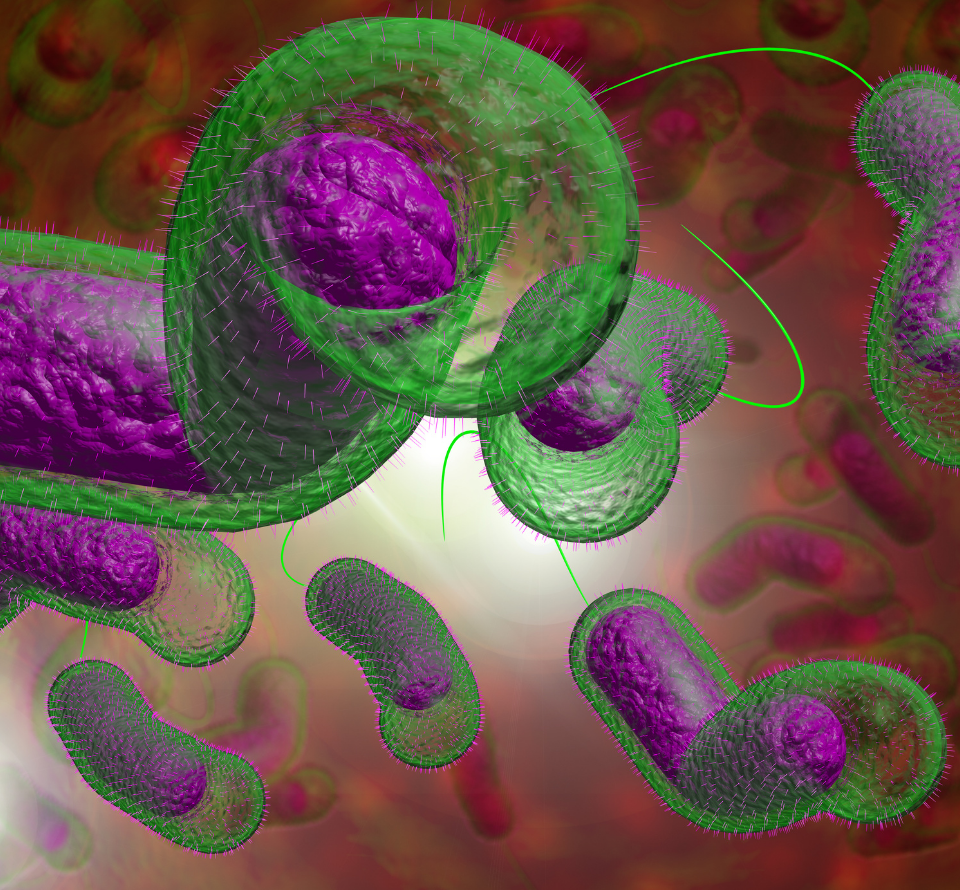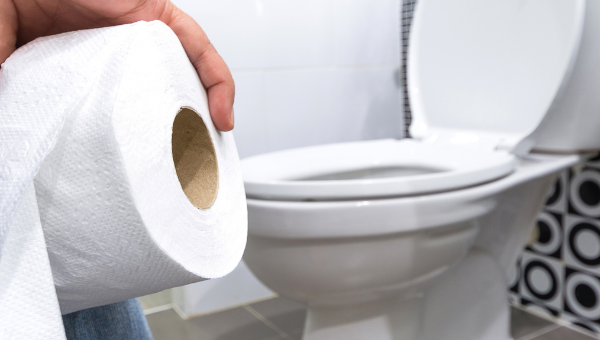Our immune system protects our body from outside invaders like bacteria, viruses, fungi, and toxins. It is made of different organs, cells, and proteins, found in our lymph system. Colon health largely influences our immune system.
The gut plays a role in over 80% of the immune system, and has a direct connection with the brain through the vagus nerve. Poor bacterial balance or dysbiosis is associated with every digestive tract disorder, including auto-immune conditions, psychological and behavioral issues. The health of the body and mind are dependent upon a healthy microbiome.
Approximately 80% your immune defense system is housed in the mucosal lining of the small and large intestines.
More than 400 species of bacteria live in our intestines. Researchers say that maintaining a positive balance of good bacteria in the colon crowds out the harmful, unfriendly bacteria, making it difficult for them to multiply. Colon irrigation washes out bad bacteria from the bowel enabling the positive or good bacteria to thrive. Attention to your diet will assist this process greatly.
Your digestive health influences your immune system
The food you eat, and your lifestyle choices directly affect the large intestine. As a consequence of bad eating habits, many illnesses flourish – worsening our quality of life. Many of the foods we eat are difficult to digest. Some ingredients we eat are so foreign to our system, it is impossible to digest them without assistance.
Colon health influences your immune system – and – colonics can help to remove the toxic sludge leftover from bad food choices and fermentation of poor food combining – quickly and effectively. The average person has approximately 5 to 20 pounds of fecal matter resting or lodged in their colon, thereby increasing harmful bacteria. This can affect your health negatively and lead to intestinal toxemia, or auto-intoxication.
Auto-intoxication happens when the body absorbs too much toxic waste. What are signs of auto-intoxication?
- Bloating, indigestion, acid reflux, constipation, diarrhea, low energy levels.
- Fatigue, heartburn, headaches, aches and pains, weight problems/difficulty losing weight (weight loss issues), insomnia.
- Acne, endocrine disturbances, irritability, parasites, abdominal distension, candida, allergies, difficulty concentrating, sallow complexion, irritable bowel syndrome (IBS), and food sensitivities.
- Immune system and circulatory problems, arthritis, skin conditions like psoriasis and eczema, backaches, anxiety.
The list is long, and exactly why we suggest having regular colonics.
Innate & Adaptive Systems
The immune system is made up of two parts – Innate and Adaptive – found in various organs of the body, including:
- Adenoids. Two glands located at the back of the nasal passage,
- Peyer’s patches. Lymphoid tissue in the small intestine,
- Bone marrow. The soft, spongy tissue found in bone cavities,
- Lymph nodes. Small organs shaped like beans, which are located throughout the body and connect via the lymphatic vessels,
- Lymphatic vessels. A network of channels throughout the body that carries lymphocytes to the lymphoid organs and bloodstream,
- Spleen. A fist-sized organ located in the abdominal cavity,
- Thymus. Two lobes that join in front of the trachea behind the breastbone,
- Tonsils. Two oval masses in the back of the throat.
Microphages and diet
GOOD – Microphages engulf and digest invaders. Microphages are created from precursor cells in the bone marrow.
BAD – 1 teaspoon of sugar can cut off these protectors for up to 5 hours!
How do you maintain good levels of microphages?
Maintaining good levels of microphages is key to having a healthy immune system.
Eat a healthy diet. Avoid smoking and excessive drinking. Maintain a healthy weight. Take immune supplements if needed.
Eating foods containing folic acid, iron, protein, and vitamin B6 are great ways to ensure healthy bone marrow, which results in healthy production of microphages for your immune system.
Acquired Immunity
Acquired immunity develops through exposure to viruses by remembering previous invaders. It remembers forever! Without acquired immunity, chronic sickness is inevitable!
While your immune system won’t have a “specific memory” of a virus, it will mount an immune response if you are infected by a virus.
This is how your immune system works! Good to know in times like these. Without any exposure, we are “fubar’d”!
Social distancing / isolation and the immune system
The psychological effects of social isolation can affect your immune system. The culprits – loneliness and stress.
Research proves our anti-viral response is suppressed when we are separated from others.
Stress has harmful effects on immune function. The hormones involved in a stress response — cortisol — stimulate the production of sugar, epinephrine and norepinephrine, which increase heart rate and elevate blood pressure.
The pandemic has created different types of stress for all us, including the stress of having to socially distance ourselves for an extended period of time.
The body’s other defenses against microbes
Other ways the body defends itself against microbes, include:
- Skin. A waterproof barrier that secretes oil with bacteria-killing properties.
- Bowel. The constant flushing of the bowel and urinary tract are very important parts of flushing toxins from the body.
- Lungs. A mucous in the lungs (phlegm) traps foreign particles in small hairs that allow you to cough them up.
- Digestive tract. The mucosal lining in the digestive tract contains antibodies, and the acid in the stomach can kill most microbes.
- Other defenses – body fluids like skin oil, saliva and tears contain anti-bacterial enzymes that help reduce the risk of infection.
Colon hydrotherapy and good bacteria

Good bacteria (or flora) thrives in a clean colon. Most people live their life with a colon that suffers from bacterial or yeast overgrowth, malabsorption and other deficiencies which lead to a flurry of symptoms similar to that of SIBO, IBS, and other common disorders. This is common for people who have had years of improper eating habits, lack of exercise and poor elimination.
After a colonic, people have a clearer and happier mindset, reduced joint pain, feel lighter and less bloated.
One of the greatest benefits of a colon cleansing program is to flush away unfavorable bacteria – thereby positively changing the environment in the colon. Colon health and the immune system!




